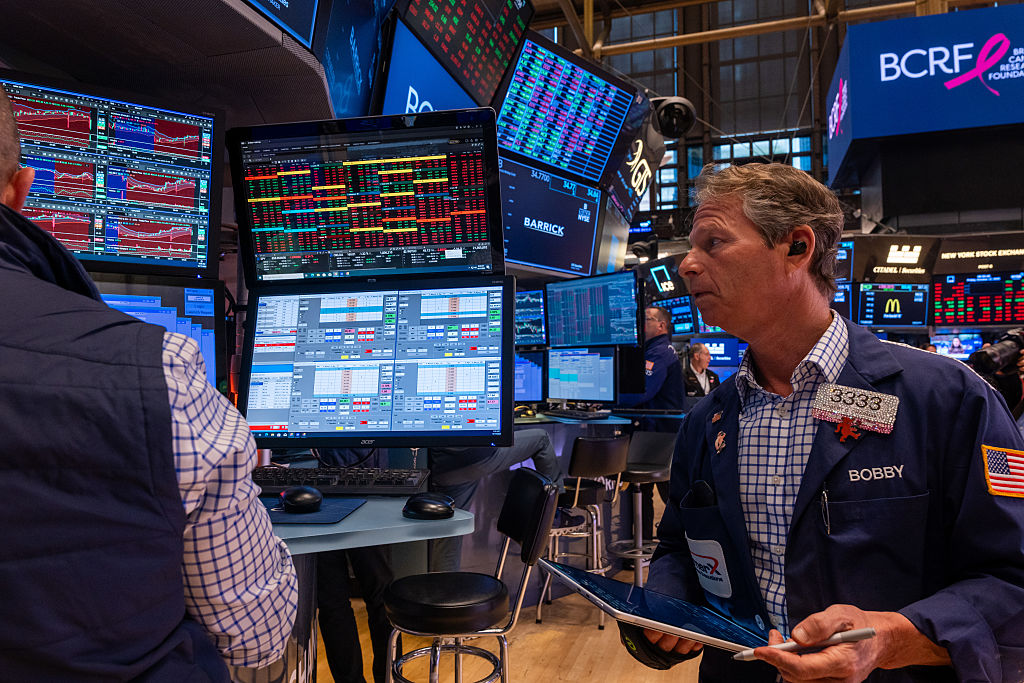Aim has missed its target – will it recover?
Aim, London's junior stock market, has become less appealing to investors amid scandals and an upcoming inheritance tax blow next April. Will it make a turnaround?

Get the latest financial news, insights and expert analysis from our award-winning MoneyWeek team, to help you understand what really matters when it comes to your finances.
You are now subscribed
Your newsletter sign-up was successful
Want to add more newsletters?

Twice daily
MoneyWeek
Get the latest financial news, insights and expert analysis from our award-winning MoneyWeek team, to help you understand what really matters when it comes to your finances.

Four times a week
Look After My Bills
Sign up to our free money-saving newsletter, filled with the latest news and expert advice to help you find the best tips and deals for managing your bills. Start saving today!
London’s Aim market turned 30 this month, but few are celebrating. The 1990s dream of an “accessible” venue to help small UK firms grow has gone largely unrealised, says Richard Evans of Fidelity International.
Listings on the London Stock Exchange’s junior market have fallen below 700, down from a peak of 1,700 in 2007. In the year to February, 61 firms left Aim and only ten joined. The FTSE Aim All-Share index has retreated 13% over the past five years.
Rather damningly, it is also in the red over 30 years “even with dividends reinvested” – the result, in part, of “numerous” victims of the dotcom bubble implosion in the early 2000s, and long-shot listings by tiny, high-risk commodity outfits.
MoneyWeek
Subscribe to MoneyWeek today and get your first six magazine issues absolutely FREE

Sign up to Money Morning
Don't miss the latest investment and personal finances news, market analysis, plus money-saving tips with our free twice-daily newsletter
Don't miss the latest investment and personal finances news, market analysis, plus money-saving tips with our free twice-daily newsletter
Despite some genuine success stories, the market’s reputation has been blighted by too many duds and “not a few scandals” – notably including accounting trouble at bakery Patisserie Valerie. Light-touch regulation that was supposed to be a selling point ended up attracting a “disproportionate” share of unscrupulous “company promoters”, including a handful of “outright fraudsters”.
Listing standards have been tightened in response, but the narrowing regulation gap between Aim and London’s main market has only made the former less appealing, says Ian Conway in Shares. The CEO of one unnamed Aim stalwart says the annual cost of maintaining a quote, including exchange fees, is “around £750,000”. Growing red tape consumes the time of small management teams.
All of this hassle just to secure a listing on a market with far worse liquidity than on London’s main board – “even on a good day, the bid-offer spread on many Aim stocks can be 10%-15%”, compared with “fractions of a percentage point” on the senior market. Another blow is coming in April, when Aim inheritance-tax breaks will be halved.
Radical solutions to fix Aim
Aim’s woes have become so profound that some reach for radical solutions. Last year a think tank proposed scrapping the tarnished Aim brand and merging it with the main market. But “Aim is worth saving”, says Rosie Carr in the Investors’ Chronicle. For all its failings, it remains a rare platform for nurturing British growth firms. Aim firms deliver £5.4 billion in tax revenue, and support 410,000 jobs. Britain already has a problem with helping promising start-ups to scale up. Scrapping one avenue to keep innovative firms on these shores would be self-defeating.
Could Aim investors enjoy a turnaround? The risks are high, but as James Henderson notes in the Financial Times, historically smaller and midsized shares have beaten the blue chips, delivering a 6% annual performance premium between 2009 and 2021. The recent run of large-cap outperformance may not last. Aim’s challenges shouldn’t be understated, but “we might reasonably expect some reversion to [the] mean”.
This article was first published in MoneyWeek's magazine. Enjoy exclusive early access to news, opinion and analysis from our team of financial experts with a MoneyWeek subscription.
Get the latest financial news, insights and expert analysis from our award-winning MoneyWeek team, to help you understand what really matters when it comes to your finances.
Alex is an investment writer who has been contributing to MoneyWeek since 2015. He has been the magazine’s markets editor since 2019.
Alex has a passion for demystifying the often arcane world of finance for a general readership. While financial media tends to focus compulsively on the latest trend, the best opportunities can lie forgotten elsewhere.
He is especially interested in European equities – where his fluent French helps him to cover the continent’s largest bourse – and emerging markets, where his experience living in Beijing, and conversational Chinese, prove useful.
Hailing from Leeds, he studied Philosophy, Politics and Economics at the University of Oxford. He also holds a Master of Public Health from the University of Manchester.
-
 Early signs of the AI apocalypse?
Early signs of the AI apocalypse?Uncertainty is rife as investors question what the impact of AI will be.
-
 Reach for the stars to boost Britain's space industry
Reach for the stars to boost Britain's space industryopinion We can’t afford to neglect Britain's space industry. Unfortunately, the government is taking completely the wrong approach, says Matthew Lynn
-
 Britain heads for disaster – what can be done to fix our economy?
Britain heads for disaster – what can be done to fix our economy?Opinion The answers to Britain's woes are simple, but no one’s listening, says Max King
-
 'Investors will reap long-term rewards from being bullish on UK equities'
'Investors will reap long-term rewards from being bullish on UK equities'Opinion Nick Train, portfolio manager, Finsbury Growth & Income Trust, highlights three UK equities where he’d put his money
-
 How to profit from the UK leisure sector in 2026
How to profit from the UK leisure sector in 2026The UK leisure sector had a straitened few years but now have cash in the bank and are ready to splurge. The sector is best placed to profit
-
 Top stock ideas for 2026 that offer solidity and growth
Top stock ideas for 2026 that offer solidity and growthLast year’s stock ideas from MoneyWeek’s columnist and trader, Michael Taylor, produced another strong performance. This year’s stocks look promising too
-
 Goodwin: A superlative British manufacturer to buy now
Goodwin: A superlative British manufacturer to buy nowVeteran engineering group Goodwin has created a new profit engine. But following its tremendous run, can investors still afford the shares?
-
 Tetragon Financial: An exotic investment trust producing stellar returns
Tetragon Financial: An exotic investment trust producing stellar returnsTetragon Financial has performed very well, but it won't appeal to most investors – there are clear reasons for the huge discount, says Rupert Hargreaves
-
 How to capitalise on the pessimism around Britain's stock market
How to capitalise on the pessimism around Britain's stock marketOpinion There was little in the Budget to prop up Britain's stock market, but opportunities are hiding in plain sight. Investors should take advantage while they can
-
 London claims victory in the Brexit wars
London claims victory in the Brexit warsOpinion JPMorgan Chase's decision to build a new headquarters in London is a huge vote of confidence and a sign that the City will remain Europe's key financial hub